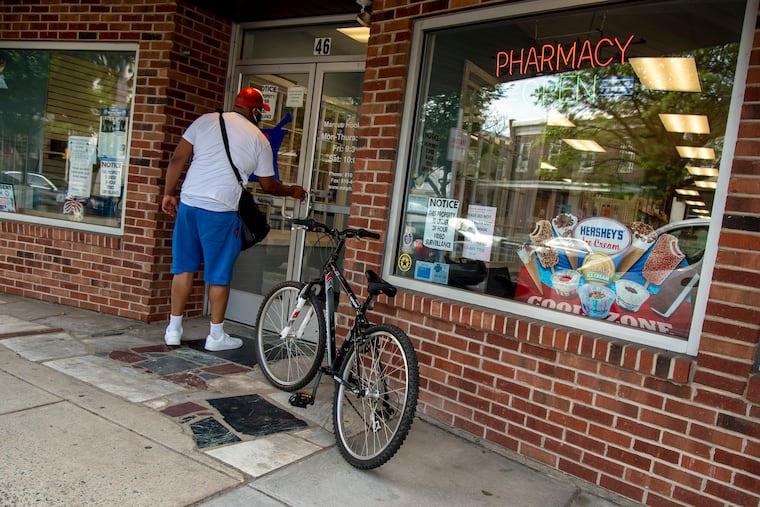FDA-approved drugs should be over-the-counter by default
Let's make the new hearing aid decision the start of a new approach: Drugs should be approved for over-the-counter use unless the FDA determines they can’t be taken safely without a prescription.

In a welcome move expected to save some patients thousands of dollars, the U.S. Food and Drug Administration (FDA) recently finalized a rule allowing hearing aids to be sold over-the-counter without the need for an exam, prescription, or fitting by an audiologist.
The FDA shouldn’t stop there.
Prescriptions often feel unnecessary and frustrating. Like when you find yourself searching the drawer for that last pack of birth control pills, only to realize you’ve run out and your prescription is expired. Or when you’re bemoaning the inconvenience and cost of a perfunctory doctor’s visit to renew a long-standing prescription.
Why is it that we need to jump through hoops for some medicines while others are readily accessible on the drugstore shelf?
The short answer is that when the FDA reviews new drugs for approval, it starts from the assumption that they can only be used safely under the guidance of a licensed clinician. In many cases, that’s true. But given the implications for individual freedom and access to essential drugs, it’s time to flip the FDA’s approach: Drugs should be approved for over-the-counter (OTC) use unless the FDA determines they can’t be taken safely and effectively without a prescription.
Consider oral contraceptives. Especially in the post-Dobbs v. Jackson Women’s Health Organization world of drastically reduced abortion access, it’s critical (but not enough) to make preventing pregnancy as easy as possible. Yet requiring a prescription for birth control pills imposes barriers on those who lack a regular physician, are uninsured, face difficulty traveling to a clinic or accessing telemedicine, or have privacy concerns. Meanwhile, there’s compelling evidence that adults and adolescents can use these drugs safely on their own. This has led at least one pill company to ask the FDA for a prescription-to-OTC switch, and others are likely to follow. Although some states may still try to interfere with contraceptive access, the FDA agreeing to over-the-counter status for the pill would bring the U.S. in line with many Latin American and European countries.
Other categories of drugs, including those used by patients living with certain chronic conditions, such as bronchodilators for asthma, epinephrine autoinjectors for severe allergies, and statins for elevated cholesterol, are also good candidates for over-the-counter status. Drugs to prevent HIV, reverse opioid overdose, and help people quit smoking should be available over-the-counter, too, given their lifesaving potential and the economic and social barriers that may block some people from getting a prescription.
Of course, some drugs can be misused, intentionally or accidentally, and therefore should only be available by prescription. This includes drugs that are addictive, cause altered mental states, or are susceptible to illicit use, as well as antibiotics, which can increase the frequency of drug-resistant infections if used improperly. We may also need to accept prescription requirements for drugs that many people would struggle to use safely on their own, even if some could do so successfully.
To be clear, we aren’t suggesting doing away with the FDA drug approval process altogether — that remains essential for both prescription and over-the-counter drugs. The FDA approvals force companies to produce the evidence about safety and effectiveness that we all need to make informed medical decisions. But as the FDA reviews that evidence, it should be asking why a prescription is needed, rather than demanding that companies convince it one isn’t. This approach would be more in line with what we normally expect in the face of an intrusion on personal liberty — namely, proof the intrusion is necessary.
The FDA could make this change on its own, perhaps as part of its pending regulatory proposal that would allow a drug to be approved without a prescription requirement if there were “additional conditions” in place to ensure appropriate use. Or Congress could include the change as part of upcoming “must-pass” legislation to reauthorize FDA funding. Since over-the-counter status could impact insurance coverage and affordability, those issues will also need to be addressed.
While we don’t expect drugstore shelves to be flooded with new over-the-counter products, flipping the agency’s default will reduce some current barriers to over-the-counter designation and be more respectful of individual freedom than the status quo. Maybe that’s one thing Democrats and Republicans can agree on.
Madison Kilbride is an assistant professor of philosophy at the University of Utah. Steven Joffe and Holly Fernandez Lynch are faculty in the department of medical ethics and health policy at the University of Pennsylvania’s Perelman School of Medicine and senior fellows at the Leonard Davis Institute of Health Economics.